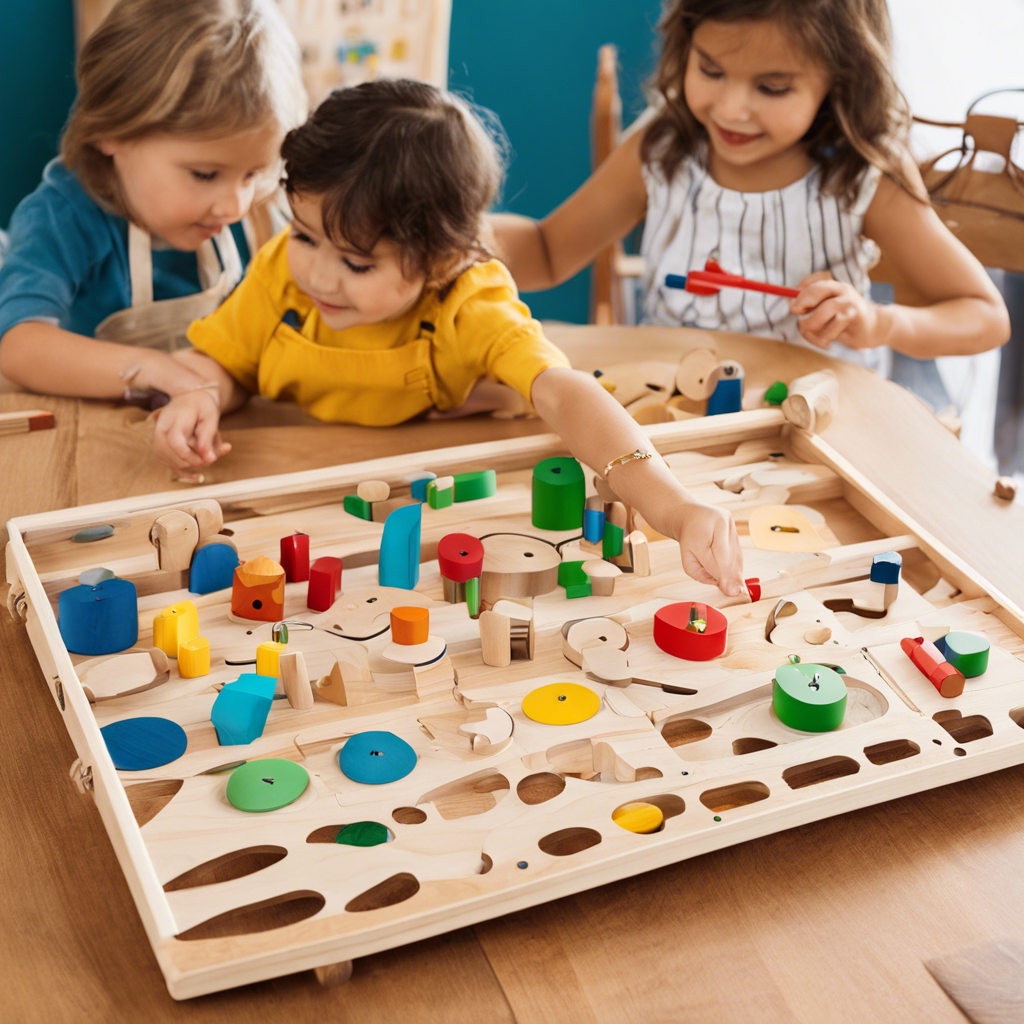Educational toys are an integral part of a child’s learning and development process, and there is a growing trend towards handmade, artisanal toys that offer unique benefits. These toys are not only fun and engaging but also provide an opportunity to impart valuable knowledge and skills. With the holiday season approaching, parents and caregivers are on the lookout for meaningful gifts, and educational toys check all the right boxes.
Wooden blocks, hand-knit dolls, and puzzles have long been childhood staples, and for good reason. These toys encourage creativity, problem-solving, and critical thinking. For instance, building a tower with wooden blocks helps children understand spatial relationships and gravity. Similarly, solving a puzzle improves concentration, memory, and pattern recognition. Handmade toys often have unique characteristics, making them excellent tools for teaching children about diversity and individuality. No two hand-knit dolls are exactly alike, just as no two friends are exactly the same. Playing with these toys can foster an appreciation for uniqueness and help children understand that everyone has something special to offer.
In a world where screens are everywhere, offering children tactile experiences through artisanal toys is invaluable. Handmade toys often have interesting textures and invite children to touch, squeeze, and manipulate them in various ways, enhancing their fine motor skills. The sense of touch is integral to a child’s development, and connecting it with play creates a powerful learning experience. For instance, a child squeezing a soft, hand-knit ball learns about pressure and texture, improving their sense of touch.
Artisanal toys also provide a wonderful opportunity to teach children about quality and sustainability. Handmade toys are often crafted with care and attention to detail, using durable materials that can withstand years of play. This contrasts sharply with the disposable culture of fast-manufactured toys that break easily and end up in landfills. By choosing wooden blocks over plastic ones, parents can introduce the concept of environmental responsibility and teach children to value well-made, timeless toys.
Educational toys that are handmade offer a distinct advantage in that they often combine play with learning a skill or trade. Toys like weaving looms or pottery wheels engage children in traditional crafts, fostering an appreciation for cultural heritage and teaching them a skill they can be proud of. These toys encourage children to explore their creativity and develop a sense of pride and accomplishment as they create something tangible.
The educational benefits of toys like these can be enhanced by involving parents and caregivers in the play process. Playing together offers an opportunity for bonding and creates a supportive environment for children to learn and grow. Caregivers can guide children to explore and discover, fostering a love for learning at an early age. Through open-ended questions and shared problem-solving, caregivers can extend the learning potential of these toys.
Handmade toys often incorporate natural materials, such as wood, wool, and cotton, which offer sensory experiences that cannot be replicated by plastic or electronic toys. The weight of a wooden block, the softness of a cotton doll, or the roughness of a pottery wheel provide tactile experiences that engage multiple senses and promote neural connections in the developing brain. These sensory experiences are crucial for children’s cognitive, social, and emotional development, helping them make sense of the world around them.
The appeal of handmade educational toys extends beyond the benefits to the children playing with them. These toys often become cherished keepsakes, passed down through generations. They have a timeless quality that outlives fleeting toy trends. A classic, handcrafted teddy bear can be just as captivating today as it was decades ago, providing comfort and fond memories for children and adults alike. These toys become more than just playthings; they become family heirlooms, carrying stories and emotional connections.
When purchasing educational toys, it is essential to consider the safety and age-appropriateness of the toys. Handmade toys should adhere to safety standards, such as non-toxic materials and smooth edges, to ensure children can play safely. Additionally, choosing toys that match the child’s age and developmental stage is crucial for ensuring optimal benefits. Toys that are too simple may bore older children, while those that are too complex may frustrate younger ones. Therefore, selecting toys with the appropriate level of challenge is key to engaging children productively.
The educational value of handmade toys can be further enhanced by choosing open-ended toys that inspire creativity and imagination. Toys with multiple uses or no predetermined outcome allow children to explore freely, invent games, and develop their critical thinking skills. For example, a set of wooden blocks can become anything from a castle to a spaceship, encouraging children to think outside the box and fostering their problem-solving abilities. These toys provide a blank canvas for children’s imaginations to run wild, promoting self-expression and originality.
In conclusion, educational toys that are handmade offer a rich and unique learning experience for children. They encourage creativity, critical thinking, and a connection to cultural heritage and craftsmanship. By choosing artisanal toys, parents and caregivers can provide children with meaningful play experiences that impart valuable skills and knowledge. As we approach the holiday season, consider supporting small businesses and artisans who create these handmade educational toys, and give the gift of learning and fun to the children in your life. These toys will not only bring joy but also foster a love of learning that will benefit children for years to come.

